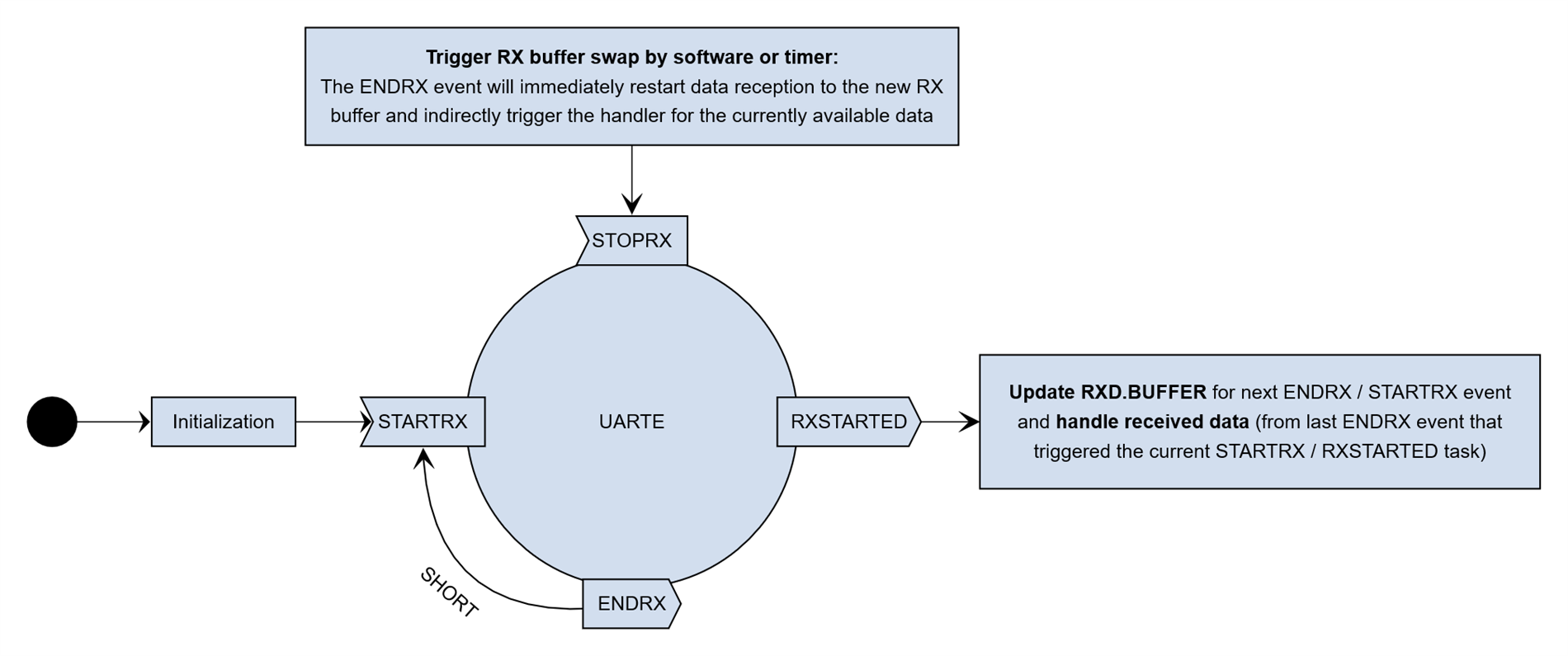Hello,
my goal is to enable two virtual COM ports via USB, where one is used for the Zephyr console and debug output, and the other is used for my software's communication interface. The debug console is already running fine. I'm using the nRF5340 SoC.
I already had a look at the cdc_acm and cdc_acm_composite samples, but I have trouble combining the configurations with my existing debug console configuration.
I use the following proj.conf:
CONFIG_PRINTK=y CONFIG_ASSERT=y CONFIG_GPIO=y CONFIG_ZERO_LATENCY_IRQS=y CONFIG_USB_DEVICE_STACK=y CONFIG_USB_DEVICE_PRODUCT="My USB product" CONFIG_USB_DEVICE_PID=0x0004 CONFIG_USB_DEVICE_INITIALIZE_AT_BOOT=y CONFIG_SERIAL=y CONFIG_CONSOLE=y CONFIG_UART_CONSOLE=y CONFIG_UART_LINE_CTRL=y #CONFIG_UART_INTERRUPT_DRIVEN=y CONFIG_BT=y CONFIG_BT_PERIPHERAL=y CONFIG_BT_DEVICE_NAME="My BT Device" CONFIG_BT_HCI=y CONFIG_SYSTEM_WORKQUEUE_STACK_SIZE=2048
And a extended my devicetree overlay with the cdc_acm_uart1 entry. (cdc_acm_uart0 was used for the Zephyr debug console and referenced in chosen {...} ).
&zephyr_udc0 {
cdc_acm_uart0: cdc_acm_uart0 {
compatible = "zephyr,cdc-acm-uart";
};
cdc_acm_uart1: cdc_acm_uart1 {
compatible = "zephyr,cdc-acm-uart";
};
};
First, I have two questions about the configuration:
- I'm using CONFIG_USB_DEVICE_INITIALIZE_AT_BOOT=y for the debug console. The samples have this setting disabled (=n). Is there anything I have to take care of?
- The samples seem to enable some interrupt driven drivers (CONFIG_UART_INTERRUPT_DRIVEN=y). I originally had this configuration disabled (not mentioned) in my zephyr console version, and it worked just fine. What is the impact of this setting?
Second, I have to find a way how to access the cdc_acm_uart1 instance in my software. I didn't succeed yet as the samples access the driver by choosing just some device that fits the device class, but I need the specific one. The composite sample is so confusing on accessing the device instances that it didn't help either. I tried dev = DEVICE_DT_GET(cdc_acm_uart1); but this line fails during compiling. I tried dev = DEVICE_DT_GET_OR_NULL(cdc_acm_uart1); but the macro returned zero/null. How can I access the device for handling the data?
Also, I'm a bit stressed by seeing the uart implementation in the samples, using "interrupt handlers" while the cdc_acm interface is just a software layer and the actual interrupts should happen on the USB interface's driver, not the uart implementation. Isn't there a more convenient driver implementation? If I implemented such a driver in FreeRTOS, I would just define queues that handle the data (a send queue that invokes a higher priority send task once data is queued, and a receive queue that just holds all received data for polling by the software. Some virtual uart (cdc_acm) interface like this would be much more convenient than simulating uart with interrupts (and dynamically enabling/disabling interrupts, which is kind of opaque in the samples, too).

